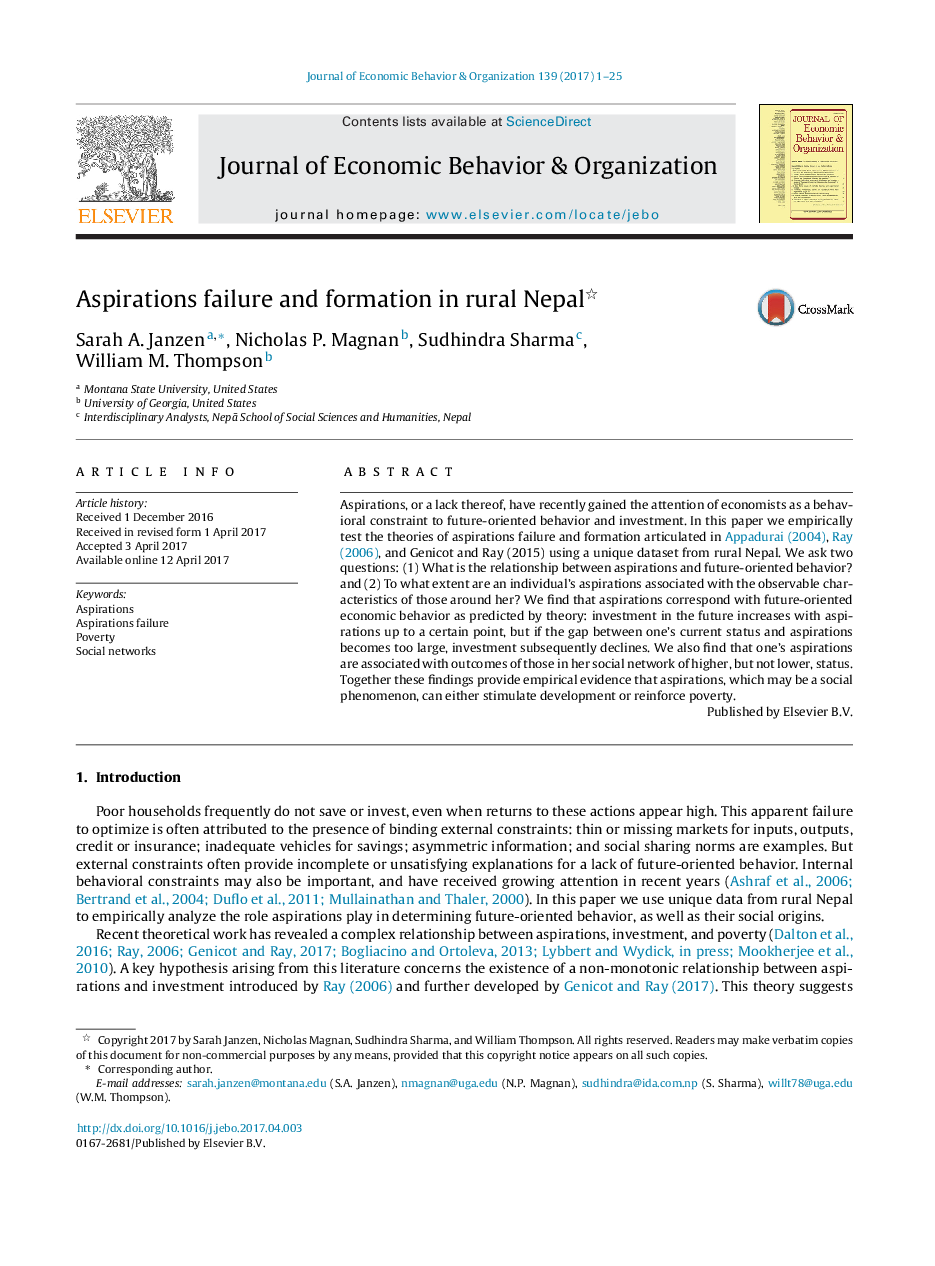| Article ID | Journal | Published Year | Pages | File Type |
|---|---|---|---|---|
| 5034515 | Journal of Economic Behavior & Organization | 2017 | 25 Pages |
Abstract
Aspirations, or a lack thereof, have recently gained the attention of economists as a behavioral constraint to future-oriented behavior and investment. In this paper we empirically test the theories of aspirations failure and formation articulated in Appadurai (2004), Ray (2006), and Genicot and Ray (2015) using a unique dataset from rural Nepal. We ask two questions: (1) What is the relationship between aspirations and future-oriented behavior? and (2) To what extent are an individual's aspirations associated with the observable characteristics of those around her? We find that aspirations correspond with future-oriented economic behavior as predicted by theory: investment in the future increases with aspirations up to a certain point, but if the gap between one's current status and aspirations becomes too large, investment subsequently declines. We also find that one's aspirations are associated with outcomes of those in her social network of higher, but not lower, status. Together these findings provide empirical evidence that aspirations, which may be a social phenomenon, can either stimulate development or reinforce poverty.
Keywords
Related Topics
Social Sciences and Humanities
Economics, Econometrics and Finance
Economics and Econometrics
Authors
Sarah A. Janzen, Nicholas Magnan, Sudhindra Sharma, William M. Thompson,
